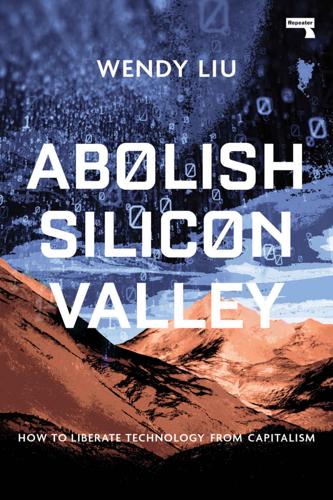
Abolish Silicon Valley: How to Liberate Technology From Capitalism
by
Wendy Liu
Published 22 Mar 2020
It was a little like group therapy for burnt-out startup founders, with the topics of discussions provided by TechCrunch headlines or VC Twitter: chatbot startups, self-driving cars, which latest tech luminary was accused of sexual harassment. Nick brought up health-tech, which Liam and I vetoed because we had no expertise in that field; I suggested something to do with food, despite having no expertise in that either. Liam babbled about fin-tech companies with the potential to democratise finance. As long as we kept talking, eventually an idea would take root. Some days, I worried that we were fooling ourselves. There was no guarantee that we would find the right idea immediately, and the thought of more pivots on the horizon was unbearable. Other days, I could already see myself giving a keynote at some startup conference several years down the line about the heart-warming story behind our miraculous pivot.
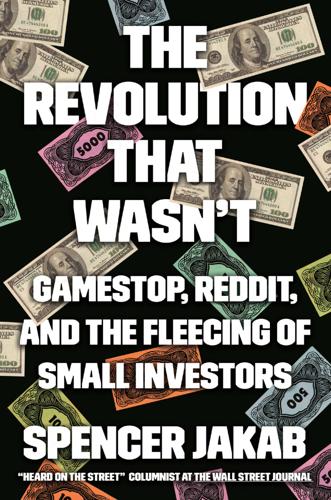
The Revolution That Wasn't: GameStop, Reddit, and the Fleecing of Small Investors
by
Spencer Jakab
Published 1 Feb 2022
The meme-stock squeeze presented an excellent opportunity to ask some hard questions about how much of our savings wind up enriching Wall Street, and what could be done to change the industry’s incentives. A few of the statements made and questions asked by members of the committee got to that point. For example, Illinois representative Sean Casten had an uncomfortable observation as he addressed Tenev. “There is an innate tension in your business model, between democratizing finance, which is a noble calling, and being a conduit to feed fish to sharks.” Another member asked Tenev if he should have seen the trading frenzy coming. Tenev called the meme-stock short squeeze a “black swan” event that had a one in 3.5 million chance of occurring. Maybe the former mathematics PhD student’s numbers were accurate, but a black swan, a term popularized by bestselling author and risk analyst Nassim Nicholas Taleb, is something one simply didn’t anticipate, not just a rarity.
…
It is Robinhood’s largest single source of income, paying it for the right to execute its stock and options orders in lieu of their being sent to an exchange where those transactions are visible to everyone. That practice, “payment for order flow,” would attract some uncomfortable questions at the hearing. In much the same way that Robinhood can point to the good it does by “democratizing finance,” Citadel can and does tout how much money it saves retail investors by efficiently matching up orders. The numbers are real, but you only save money on something if you decide to buy it in the first place. The practice makes zero-dollar commissions and frenetic trading by investors with small accounts possible.
…
Everyone’s cheering, starting to make a ton of money, and then all of a sudden, you know, boom, headline, these hedge funds are in trouble,” he says. “Then it turns into what appears, in retrospect, to be a movement. The intention was always to make money.”[2] Despite being named after the mythical hero who stole from the rich to give to the poor and its stated mission “to democratize finance for all,” the same goes for Robinhood. Ironically, the first company started by Vlad Tenev and his cofounder Baiju Bhatt after Tenev dropped out of his math PhD program at UCLA was meant to help hedge funds trade more efficiently. The two learned about the plumbing of the financial system in the process of setting it up and spotted an opportunity.
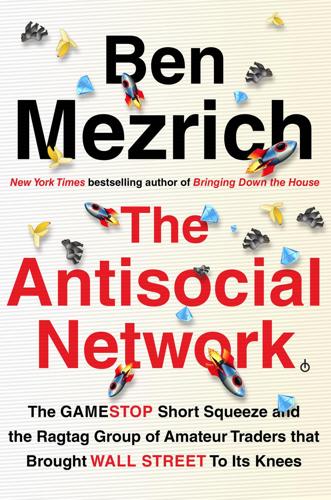
The Antisocial Network: The GameStop Short Squeeze and the Ragtag Group of Amateur Traders That Brought Wall Street to Its Knees
by
Ben Mezrich
Published 6 Sep 2021
They’d chosen the name “Robinhood” for obvious reasons; the medieval, mythical character Robin and his merry band of thieves had made it their mission to redistribute wealth, by stealing from the rich and giving to the poor. Vlad and Baiju built their own mission statement in allegorical style: instead of redistributing wealth, they would “democratize finance”—giving the retail traders Wall Street had spent a century steamrolling the necessary tools to fight back, on even ground. Robinhood’s plan was simple and twofold: offer regular people commission-free trading and do away with minimum account balances. Furthermore, the company from the start would be built around the smartphone rather than the computer—because if there was one thing young people knew, loved, and trusted, it was that shiny little screen in their hand.
…
But Emma knew better than most—the story was painfully incomplete. Because what was less obvious about the Robinhood story—what barely made it into the glowing stories and fairy tales—was how Robinhood actually made their money. And who could blame the magazines? “Payment for order flow” was a mouthful, and it didn’t make anywhere near as good copy as “democratizing finance.” In simple terms, Robinhood was able to offer zero commissions because their users weren’t actually their customers—they were, essentially, the product. Robinhood bundled up and sold their users’ trades to market makers—giant financial firms such as Two Sigma, Susquehanna, but primarily Citadel—who could near-instantly analyze the trading flow and profit by taking tiny slivers out of the spreads between bids and asks.
…
Vlad Tenev came awake suddenly to a barrage of panicking technology; his cell phone vibrating and blinking on the table next to his bed, his laptop computer pinging frantically to itself as it was pelted by e-mail after rapid-fired e-mail; even, perhaps, a landline lost somewhere in his sprawling California home, a short commute by car or bike or skateboard from the Robinhood offices in Menlo Park. Vlad rubbed his eyes, chasing the last vestiges of sleep away. He couldn’t remember what he’d been dreaming about—no doubt something having to do with democratized finance and level playing fields, or maybe renewable energy, healthy drinking water, a living minimum wage—but it had probably involved cats, and possibly even GameStop—because by the time he’d gone to sleep the night before, everyone, everywhere, had been talking about GameStop. He rolled over in his bed and reached for the phone first, hoping to quell the electronic onslaught before it woke his wife and toddler.
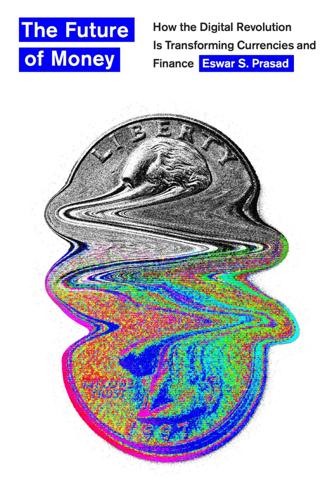
The Future of Money: How the Digital Revolution Is Transforming Currencies and Finance
by
Eswar S. Prasad
Published 27 Sep 2021
While the advent of cryptocurrencies such as Bitcoin has grabbed the headlines, it is likely that a broader set of changes resulting from advances in technology will eventually have a more profound and lasting impact on financial markets and central banks. The overall impact of this disruption could be beneficial in many ways, potentially democratizing finance and improving the lives of even poorer households by expanding their access to savings and credit products. Savers will be able to choose from a broader array of options while small-scale entrepreneurs secure financing from sources other than banks, which tend to have stringent loan underwriting and collateral requirements.
…
The Big Picture The recent and looming changes to money and finance discussed in this book have significant implications for other phenomena, such as income and wealth inequality. These changes could make it easier for even indigent households to gain entrée into the financial system, bring an array of products and services within their reach, and thereby democratize finance. But it is equally possible that the benefits of innovations in financial technologies will be captured largely by the wealthy as a result of disparities in financial literacy and digital access. Thus, the implications for income and wealth inequality—which have risen sharply in many countries, fomenting political and social tensions—are far from obvious.
…
Thus, and somewhat paradoxically, richer households—and bigger businesses—generally find it easier to obtain most forms of credit, ranging from credit cards to mortgage loans to loans for machinery. It is, as James Baldwin famously observed, extremely expensive to be poor. This situation can further exacerbate economic inequality. Clearly, innovations that democratize finance and make the fruits of a financial system accessible to a wider swath of the population would be desirable. Given the cost structure and financial incentives that traditional banks face, they might have little interest in pursuing such business. This is where financial innovations come into play, as we will see in Chapter 3.
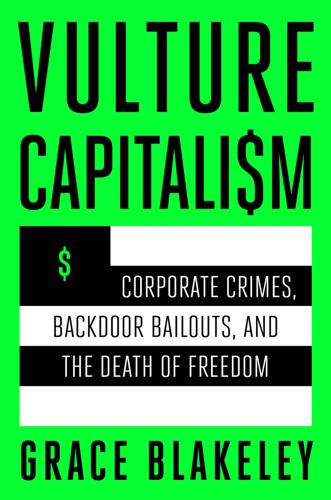
Vulture Capitalism: Corporate Crimes, Backdoor Bailouts, and the Death of Freedom
by
Grace Blakeley
Published 11 Mar 2024
See, for example, Jim Pickard, “UK’s Labour Would Seize £300bn of Company Shares,” Financial Times, September 1, 2019, https://www.ft.com/content/dc17d7ee-ccab-11e9-b018-ca4456540ea6. 56. Isabelle Ferreras, Julie Battilana, and Dominique Meda, Democratize Work. 57. See, e.g., Pickard, “UK’s Labour Would Seize £300bn of Company Shares.” 58. Michael A. McCarthy, “The Politics of Democratizing Finance: A Radical View,” Politics & Society 47, no. 4 (December 2019): 611–33, https://doi.org/10.1177/0032329219878990; Fred Block and Robert Hockett, Democratizing Finance: Restructuring Credit to Transform Society (London: Verso, 2022). 59. Christine Berry and Laurie MacFarlane, “A New Public Banking System: A Report to the Labour Party Commissioned by the Communication Workers Union and the Democracy Collaborative,” The Labour Party, https://labour.org.uk/wp-content/uploads/2019/03/Building-a-new-public-banking-ecosystem.pdf. 60.
…
In the UK, the Labour Party developed a similar proposal through which large companies would have to place a certain portion of their shares each year into a worker fund that would confer some decision-making power and distribute dividends.54 While it is true that worker ownership doesn’t inherently challenge the imperative to maximize profits—even at the expense of society as a whole—the policy is a promising way both to empower workers and challenge the power of capital, as should be evident by the ferocity with which both the Meidner Plan and Labour’s employee ownership funds were resisted.55 Another proposal is to establish a “European directive on minimum standards for the right to information, consultation, and worker representation on boards of directors.”56 This approach could also be extended to bankruptcy proceedings to support workers to buy out a company themselves through the bankruptcy process.57 Democratizing Finance As we saw in chapter 5, decisions about investment are currently the closely guarded prerogatives of capital. Financial institutions, which finance and mediate these decisions, therefore have significant power to control which businesses succeed, which individuals thrive, and which states grow.
…
Christine Berry and Laurie MacFarlane, “A New Public Banking System: A Report to the Labour Party Commissioned by the Communication Workers Union and the Democracy Collaborative,” The Labour Party, https://labour.org.uk/wp-content/uploads/2019/03/Building-a-new-public-banking-ecosystem.pdf. 60. Mariana Mazzucato and Caetano Penna, “The Rise of Mission-Oriented State Investment Banks: The Cases of Germany’s KfW and Brazil’s BNDES,” SWPS 2015-26, September 16, 2015, http://dx.doi.org/10.2139/ssrn.2744613. 61. McCarthy, “The Politics of Democratizing Finance: A Radical View.” 62. Blakeley, Stolen. The UK think tank Common Wealth later developed this proposal in their report: Adrienne Buller, Chris Hayes, and Mathew Lawrence, “Asset Manager Capitalism: Where Next?,” Common Wealth, June 21, 2022, https://www.common-wealth.co.uk/publications/asset-manager-capitalism-where-next. 63.
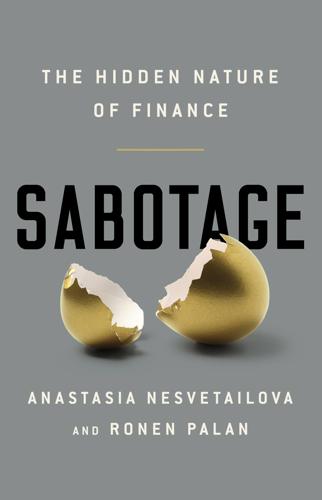
Sabotage: The Financial System's Nasty Business
by
Anastasia Nesvetailova
and
Ronen Palan
Published 28 Jan 2020
Wire and transfer fees will be decreased by using bitcoin, clearing and settlement can happen instantly, loans and credit applications can be assessed on the spot and consumers will have instant access to the funds they need and the answers they require.32 The political appeal of blockchain is rather unique. The Right cheers the ability of the technology to force a decentralization of the system and independence from formal governance structures. The Left sees an enormous potential of blockchain to democratize finance as a system that has become systemically corrupt, and thus empower people’s direct participation. Academics and economic historians are convinced that technology will forever change banking as we know it. Veblenians are among those who do not share the general enthusiasm. They cast a weary eye on blockchain and its offspring, as well as on the whole new fintech phenomenon.
…
Self-interested financial actors would balance each other and ensure that the ‘market’ would root out unsavoury behaviour. Financial institutions, keen to maintain credibility and market reputation, would navigate the risks prudently. It became fashionable to believe that egotism and self-interest will ensure an optimal playing field. Financial innovation has been celebrated in the name of democratizing finance, expanding credit and improving the techniques of mediating between capital markets and borrowers. The real scandal of the costs of deregulated finance is not that it unravelled amid the financial fiasco of 2007–9. It is that its origins had been uncovered and dealt with back in the 1930s, practically to the last detail.
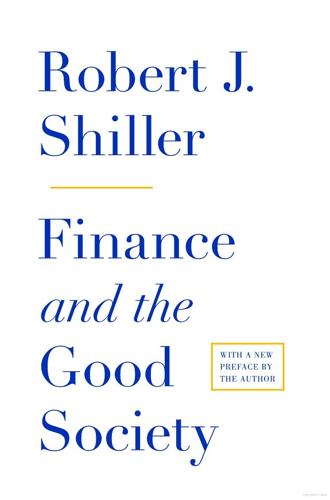
Finance and the Good Society
by
Robert J. Shiller
Published 1 Jan 2012
Dealing with that risk is left to our conscience and to our human spirit. Chapter 29 The Dispersal of Ownership of Capital The history of nancial capitalism is to a substantial extent a history of deliberate government policies to disperse nancial interests, to disperse ownership across a wider segment of the population. Such policies have helped democratize finance. People seldom realize to what extent we live in a society that is structured by nancial design to become better and better over time. The history that brought us to certain nancial arrangements is often forgotten, and it is useful to remind ourselves of some of that history. Here I o er some examples of past progress that is unseen and unappreciated today.
…
But these are problems that we associate with nance only because advanced nance is used as a tool by some who wish to preserve their special status. It is not the nancial tools themselves that create the caste structure, though their mechanisms are part of the equilibrium. The same nancial tools can also, if suitably designed and democratized, become a means to break free from the grip of any caste equilibrium. Truly democratic finance can enable one to escape outcast status. Financial capitalism is a work in progress. It is not yet perfected, but it is gradually improving. As we have seen, it is de ned by a long list of nancial practices and speci c roles and responsibilities for people within those practices. Watching most of these people in operation from day to day, one comes to feel that in our modern society caste-like behavior has been much attenuated.
…
Today it is largely a list of the descendants of the same families who were wealthy and prominent a century ago, and it has largely been forgotten by mainstream society.3 Much the same has happened to Burke’s Peerage in the United Kingdom and its European counterpart, the Almanach de Gotha, which ceased publication in 1944.4 In China the national records of degree-holding literati and the local gazetteers died out before the end of the Qing dynasty in 1912. There is a more egalitarian spirit abroad in the world, and this spirit is supported by democratized finance. Partly it is the presumption, the arrogance, that accompanies economic power that rankles. And the fact that so many people seem to admire the wealthy and powerful bothers us. Why do people think the wealthy are so special? Even presidents wonder about that. Franklin D. Roosevelt once said, I am simply unable to make myself take the attitude of respect toward the very wealthy men which such an enormous multitude of people evidently feel.
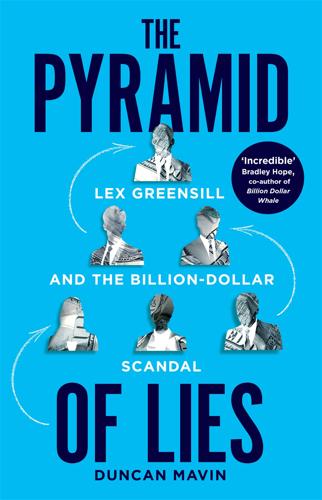
The Pyramid of Lies: Lex Greensill and the Billion-Dollar Scandal
by
Duncan Mavin
Published 20 Jul 2022
David Brierwood, Lex’s old mentor from Morgan Stanley, was a Crown Representative from 2014 to 2018, and he began working for Greensill Capital from 2014. Lex also hired former UK Home Secretary David Blunkett and Australia’s former Minister of Foreign Affairs, Julie Bishop. How did he get the politicians on board? Some of them might have bought into Lex’s claim that he was ‘democratizing finance’. Typically, those closest to Greensill were given a major financial incentive. The firm was a big payer – salaries were sometimes double the norm. And Lex distributed shares liberally too. One politician who turned him down was the late Paul Myners, the former UK Treasury minister under Gordon Brown, who passed away in early 2022.
…
The magazine even included a full-page photo of Lex, grinning like Time magazine’s person of the year, in a dark blue suit, crisp white shirt and perfectly knotted crystal-blue tie. His bio included the MBA, the law qualification, his stints at Morgan Stanley and Citi and in the UK government. It also said: ‘He advised both Downing Street and the White House on the launch of their own supply chain finance initiatives.’ Lex talked gushingly of democratizing finance, of having small businesses close to his heart, though he also said that clients were typically large multinational companies. The returns on offer are ‘hugely attractive’, he said, as are ‘the short duration and insurance cover of the underlying notes.’ The article said that Greensill Capital had started out with ‘a seasoned team of specialists’ and had grown to more than 160 staff in London, New York, Chicago, Frankfurt, Sydney and Mexico City.
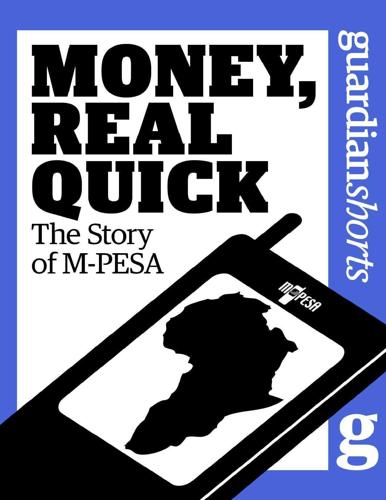
Money, Real Quick: The Story of M-PESA
by
Tonny K. Omwansa
,
Nicholas P. Sullivan
and
The Guardian
Published 28 Feb 2012
In 2007, mobile money took off successfully after a number of other unsuccessful initiatives, meaning that the shilling can be represented by an SMS message. Money need not be metal nor paper nor cowrie shell, but can be an electronic flash on a screen as long as there is trust that the bearer of the flash will be able to redeem it when needed or use it as a method of exchange. The shift to mobile money, in theory, democratizes finance by increasing the density of access points (anyone who has a phone) and by reducing the cost of transacting (sending an SMS versus making a trip), both of which had restricted financial services to wealthier and more urban residents. Mobile money is helping to move people from informal to quasi-formal and formal financial services, some of which are quite new and innovative.
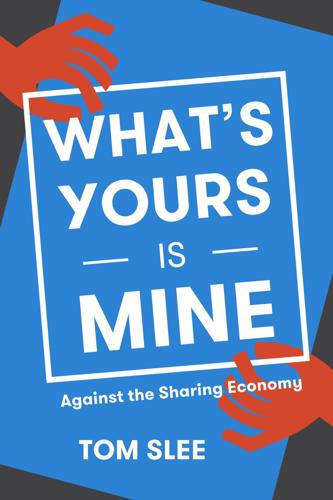
What's Yours Is Mine: Against the Sharing Economy
by
Tom Slee
Published 18 Nov 2015
As a final example of the distortion of a commons, consider peer-to-peer lending company Lending Club. Set up in 2007, it is now the leader in a wave of innovations that Rachel Botsman describes with typical enthusiasm: [A] new generation of person-to-person and crowd-driven funding, lending, currency and investment services that will decentralize and democratize finance, money and banking . . . It is a subject I am passionate about. How can we shift banking back to being a trusted pillar of society? How can we create monetary systems where the real benefits flow back to individuals, not the big financial mega stores? How can we create financial access to underserved communities?
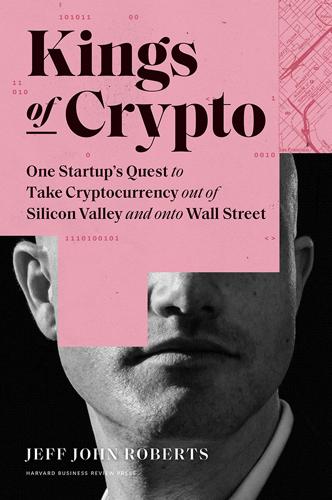
Kings of Crypto: One Startup's Quest to Take Cryptocurrency Out of Silicon Valley and Onto Wall Street
by
Jeff John Roberts
Published 15 Dec 2020
The Financial Times’ influential Alphaville column spewed snark at ICOs and “crypto bros,” warning it would all end in tears. But such doomsday prophecies from the financial establishment made little impression inside the bubble of Silicon Valley, where the tech elite were buzzing about an essay published by one of their own. Titled “Thoughts on Tokens,” the essay explained how ICO-style fundraising would help democratize finance and throw open the door to investments from around the globe: no longer would startups have to depend on a clique of venture capitalists to get off the ground. The high priests of Silicon Valley would soon be competing with a global base of token buyers to invest in new companies. The essay’s author was Balaji Srinivasan—the same Balaji Srinivasan who had turned up at Coinbase three years before looking like a hobo/drug dealer with Ivy League ideas, and who was now a partner at the VC firm Andreessen Horowitz.
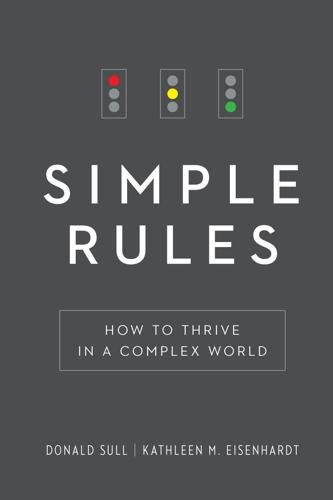
Simple Rules: How to Thrive in a Complex World
by
Donald Sull
and
Kathleen M. Eisenhardt
Published 20 Apr 2015
. [>] In an insightful article: Tina Fey, “Lessons from Late Night,” New Yorker, March 7, 2011. [>] Indiegogo’s rules reflect: Kathy is grateful for the superb research help of Annie Case in comparing Indiegogo and Kickstarter. Christina Farr, “Indiegogo Founder Danae Ringelmann: ‘We Will Never Lose Sight of Our Vision to Democratize Finance,’” Venture Beat, February 21, 2014, http://venturebeat.com/2014/02/21/; Dan Schawbel, “Slava Rubin on How Indiegogo Has Created Jobs,” Forbes, October 4, 2012, http://www.forbes.com/sites/danschawbel/2012/10/04/; Jessica Hullinger, “Crowdfunding Clash: How Indiegogo Wants to Kick Kickstarter’s @$$,” Fiscal Times, May 30, 2014, http://thefiscaltimes.com/Articles/2014/05/30. [>] Parenting is another domain: Diane Sonntag, “10 Golden Rules of Positive Parenting,” accessed July 31, 2014, http://www.babyzone.com/kids/positive-parenting_222185; Alyssa S.
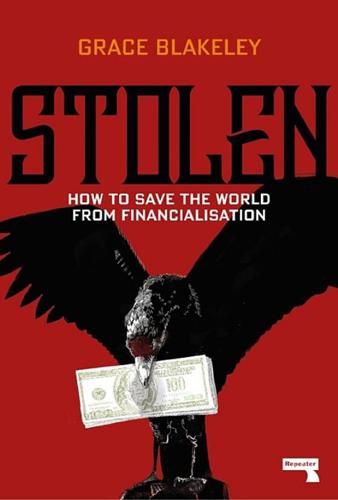
Stolen: How to Save the World From Financialisation
by
Grace Blakeley
Published 9 Sep 2019
I propose the creation of a People’s Asset Manager (PAM), which would act alongside the National Investment Bank outlined above to steadily socialise ownership in the economy as a whole, in the same way that many international investment banks also have asset management arms to allow them to take advantage of investment opportunities that arise from their lending activities. The PAM should contain a Citizen’s Wealth Fund (CWF), which would be capitalised using existing collective assets, and added to through tax revenues and the profits from the system of democratic finance.12 After several decades of almost continuous privatisation, the British state is relatively asset-poor. The Bank of England, however, owns a substantial amount of assets in the form of Treasuries — these could be used to capitalise the Citizen’s Wealth Fund as the Bank unwinds quantitative easing.
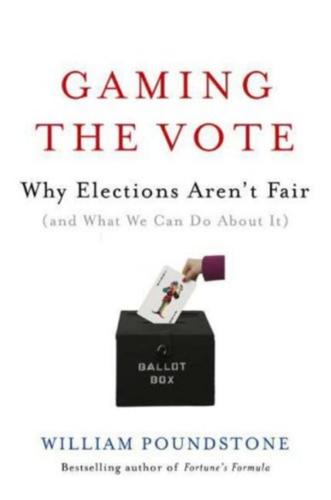
Gaming the Vote: Why Elections Aren't Fair (And What We Can Do About It)
by
William Poundstone
Published 5 Feb 2008
There is little doubt that the battery of analysts also paid close attention to the Nader spoiler effect. The Green left had elected Bush as surely as the religious right had. And beginning with the 2002 midterm elections, Republicans started aiding potential spoilers who might hurt Democrats. This trick, too, has a long history. I have already mentioned that the Democrats financed spoiler John St. John's New York campaign in 1884. The Republicans were accused of a similar tactic in the 1908 presidential race between William Taft and Democrat William Jennings Bryan. Socialist Eugene Debs, a potential spoiler, traveled the nation in 108 A un. Ralph . Ru n! Paper trails are for PUSSIES!
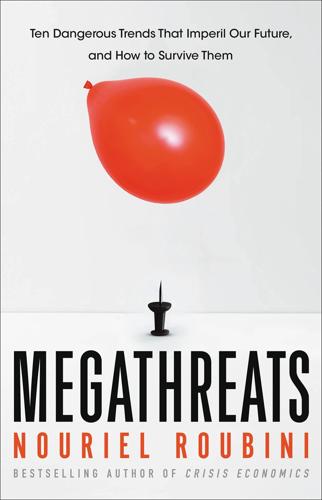
MegaThreats: Ten Dangerous Trends That Imperil Our Future, and How to Survive Them
by
Nouriel Roubini
Published 17 Oct 2022
Their money just vanished into thin air, leaving behind debts and a commemorative sweatshirt with an image of the Fed chair as a Christ figure ringed in a halo of golden light, as the Times reported. “In place of the Bible, the gospel he holds declares, ‘Recession canceled, stocks only go up.’”10 Democratizing finance by easing access and lowering cost of credit opens floodgates that seldom get the scrutiny they deserve. In the early 2000s, consumers raced to buy homes with cheap debt. Detailed postmortems fill the six-hundred-page Financial Crisis Inquiry Report and many more accounts. Now thanks to low rates and trading apps that resemble video games, uninformed investors have new reasons and new ways to borrow.
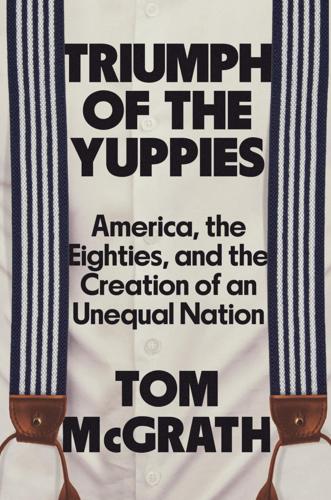
Triumph of the Yuppies: America, the Eighties, and the Creation of an Unequal Nation
by
Tom McGrath
Published 3 Jun 2024
As one observer said afterward, “Corporate America is hoping to indict Mike Milken… so it can go back to sleep for another 30 years.” In the months that followed, Milken—who never did interviews—began talking a little more to the press, including a story with writer Edward Jay Epstein in Manhattan, inc. magazine. What junk bonds had done, Milken explained to Epstein, was to democratize finance and business. As for his alliances with raiders like T. Boone Pickens and Carl Icahn and their attacks on big corporations, well, they were simply holding corporate managers accountable to shareholders and rooting out inefficiency. Ultimately, Epstein concluded, where you stood on Michael Milken probably depended on what your view of a corporation was.
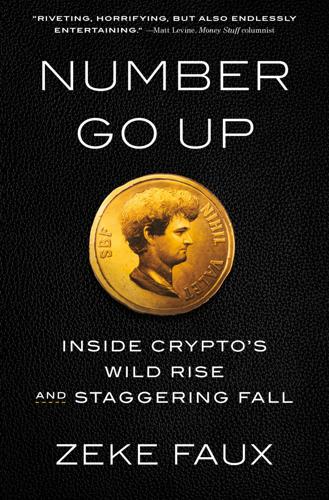
Number Go Up: Inside Crypto's Wild Rise and Staggering Fall
by
Zeke Faux
Published 11 Sep 2023
But from 2020 to early 2022, the prices of Bitcoin and hundreds of other lesser coins—with ridiculous names like Dogecoin, Solana, Polkadot, and Smooth Love Potion—were going up and up. While I was in the Bahamas, people traded more than $500 billion worth of them, and the market value of all coins combined topped $2 trillion. Crypto boosters claimed they were in the vanguard of a revolution that would democratize finance and lead to generational wealth for those who believed. The roar of the rising prices drowned out the skeptics. Incomprehensible jargon became inescapable. Blockchain. DeFi. Web3. The metaverse. What these terms meant was beside the point. Newspapers, TV, and social media bombarded potential investors with stories of regular people who invested in them and got rich quick.
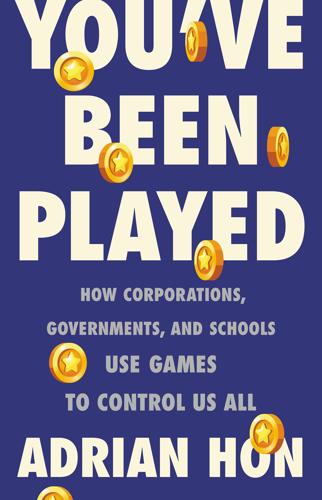
You've Been Played: How Corporations, Governments, and Schools Use Games to Control Us All
by
Adrian Hon
Published 14 Sep 2022
YOUR SCORE IS YOUR BALANCE One of the most interesting video games that launched in 2020 was Hyperbolic Arcade Trading.42 It promised to teach players the fundamentals of trading and technical analysis by compressing an entire day’s trading into just two minutes, accompanied by an appropriately retro ’80s aesthetic. Hyperbolic Arcade Trading is far from the first to simulate stock markets, but one wonders whether it could be the last given the advent of Robinhood’s trading app. Robinhood launched in 2015 with the promise to “democratize” finance for retail investors (i.e., individual, nonprofessional investors), partly by means of commission-free trading, but also through a simplified interface filled with confetti and scratch-off cards and free stock giveaways.43 The company quickly attracted investment, and by late 2021 it had gained over eighteen million users, though not without running into a seemingly endless stream of controversies.44 Every trading service has its share of users who lose more money than they can afford; that there are Robinhood users with tales of woe is not surprising.
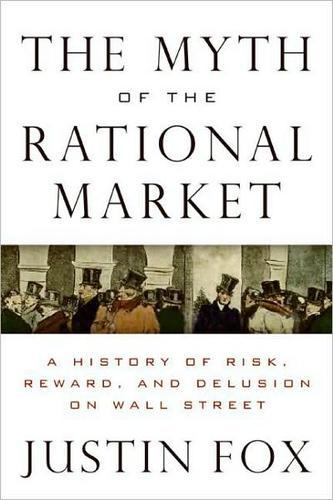
The Myth of the Rational Market: A History of Risk, Reward, and Delusion on Wall Street
by
Justin Fox
Published 29 May 2009
“They have made it possible for firms and institutions to deal efficiently and cost effectively with risks and hazards that have plagued them for decades, if not for centuries.”18 Steve Ross had predicted this happy result two decades earlier when he argued that the more different securities there were representing different potential states of the world, the closer we would get to the state of perfect economic equilibrium envisioned by his teacher Kenneth Arrow in the 1950s. One could see shades of Harry Markowitz in this argument, too. Give people more ways to invest in and hedge against the future, and they could decrease the riskiness of their portfolios. One didn’t even have to believe in the rational market to share in this worldview. “We need to democratize finance and bring the advantages enjoyed by the clients of Wall Street to the customers of Wal-Mart,” Robert Shiller opined. “We need to extend the domain of finance beyond that of physical capital to human capital, and to cover the risks that really matter in our lives.” Shiller proposed creating new derivatives that would enable people to hedge the risks of income loss, fluctuations in home prices, and falling GDP.
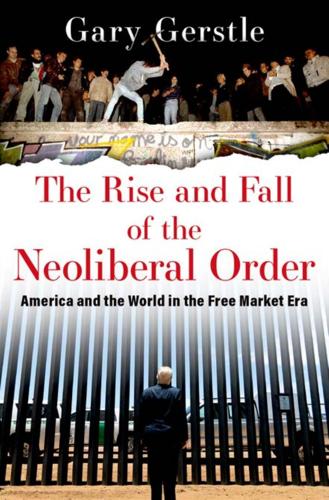
The Rise and Fall of the Neoliberal Order: America and the World in the Free Market Era
by
Gary Gerstle
Published 14 Oct 2022
et_rid=1773137024&s_campaign=todaysheadlines:newsletter; accessed December 10, 2021; Dee-Ann Durbin and Carolyn Thompson, “In a First for Starbucks, Workers Agree to Form Union,” Boston Globe, December 9, 2021, https://www.bostonglobe.com/2021/12/09/business/first-starbucks-workers-agree-union-buffalo/, accessed December 10, 2021. 53.See, for example, Saule Omarova’s proposal to shift consumer deposit accounts from private banks to the Fed as a way of democratizing finance. Omarova, “The People’s Ledger.” See also Charles Lane, “Joe Biden Isn’t a Socialist but His Nominee to Regulate Banks Has Pretty Radical Ideas About the Fed,” Washington Post, October 13, 2021, https://www.washingtonpost.com/opinions/2021/10/13/joe-biden-isnt-socialist-his-nominee-regulate-banks-has-pretty-radical-ideas-about-fed/, accessed October 13, 2021.
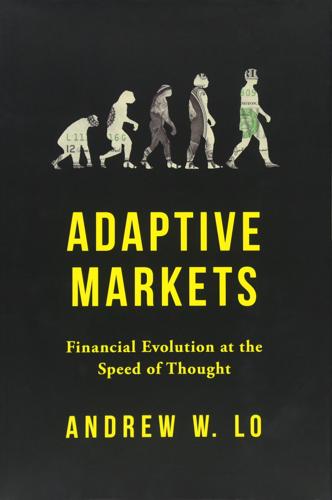
Adaptive Markets: Financial Evolution at the Speed of Thought
by
Andrew W. Lo
Published 3 Apr 2017
Modern financial economics has replaced flashy stock-pickers and prognosticators with a much more transparent and systematic investment process. Successful technologies empower people to do things that they never imagined they could do for themselves, and this new financial technology is no different. It’s democratized finance but, as with all new technologies, it also brought new risks—as we’ll see in later chapters. WHAT TO EXPECT WHEN YOU’RE EXPECTING Gene Fama had a second insight about the Efficient Markets Hypothesis: it has a split personality. The Efficient Markets Hypothesis is actually two hypotheses in one.
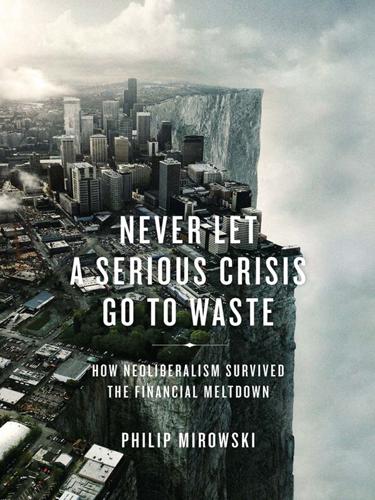
Never Let a Serious Crisis Go to Waste: How Neoliberalism Survived the Financial Meltdown
by
Philip Mirowski
Published 24 Jun 2013
Donald Westbrook (Out of the Crisis, p. 41) captures the incongruity: “if [Shiller], a tenured superstar at Yale with a reputation for intellectual originality, feels constrained to be orthodox, it seems a safe bet that most of what passes for financial policy is merely recycled.” Lo (“Reading About the Financial Crisis”) summarizes: Shiller proposes “democratizing finance—extending the application of sound financial principles to a larger and larger segment of society.” This follows from his theoretical premise: if bubbles are caused by the contagion of mistaken beliefs about economic outcomes, then the cure must be inoculation against further mistaken beliefs and eradication of currently mistaken ones.
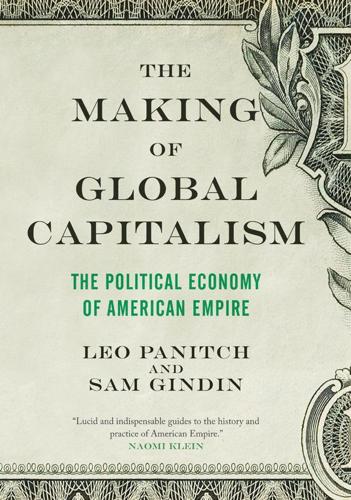
The Making of Global Capitalism
by
Leo Panitch
and
Sam Gindin
Published 8 Oct 2012
Indeed, Volcker himself thought the Europeans had not pushed the option of extending capital controls nearly as much as they should have.51 Those among the German political elite who were in favor of the temporary use of capital controls were in fact the most conservative and monetarist and the least oriented to the guiding principles of Bretton Woods; German Keynesians (above all the social democratic finance minister, Karl Schiller) were at one with US economists like Galbraith and Kindleberger in viewing capital controls as antithetical to liberal internationalism.52 In fact, among the nine leading industrialized countries, by 1973 Germany’s financial system was already the most liberalized.53 The fact was that, by this time, the degree of financial interpenetration among the leading capitalist states was such that controls would have had to be very extensive—and they could only have been imposed against the strong opposition of the most powerful sections of the European and Japanese capitalist classes.
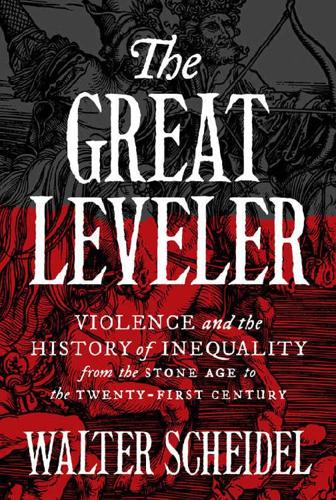
The Great Leveler: Violence and the History of Inequality From the Stone Age to the Twenty-First Century
by
Walter Scheidel
Published 17 Jan 2017
This was part of the Social Democrats’ commitment to ensure that the majority is liberated from dependence upon a few owners of capital, and the social order based on economic classes is replaced by a community of citizens cooperating on the basis of freedom and equality.45 The budget proposal for 1947 to 1948 provided for spending at more than twice the level a return to prewar levels would have entailed. Although some of it was earmarked for the war debt, it also allowed welfare to be stepped up. Tax rates came down a bit from their wartime peaks, but reductions in income tax were to be offset by higher taxes on wealth and estates, shifting more of the burden onto the wealthy. The Social Democratic finance minister Ernst Wigforss conceded that the estate tax would hurt the largest fortunes, citing America and Britain as models: the new top rate on inheritances was 47.5 percent, a 150 percent increase. The bill was discussed almost exclusively from a redistribution perspective, and debate was intense.

The Marshall Plan: Dawn of the Cold War
by
Benn Steil
Published 13 Feb 2018
Seventy-four-year-old former PM Léon Blum, frail since his two-year Nazi incarceration, failed to muster a majority in the National Assembly to replace Ramadier. President Vincent Auriol, confiding to his diary that the country “was on the edge of the abyss,”43 turned to ascetic MRP (Christian Democrat) finance minister Robert Schuman. On a pledge to “defend the Republic,” Schuman secured the necessary majority on the 24th.44 Born in Luxembourg, educated in then-German Alsace, excused from German military service in World War I on health grounds, Schuman had only become “French” at the age of thirty-two.